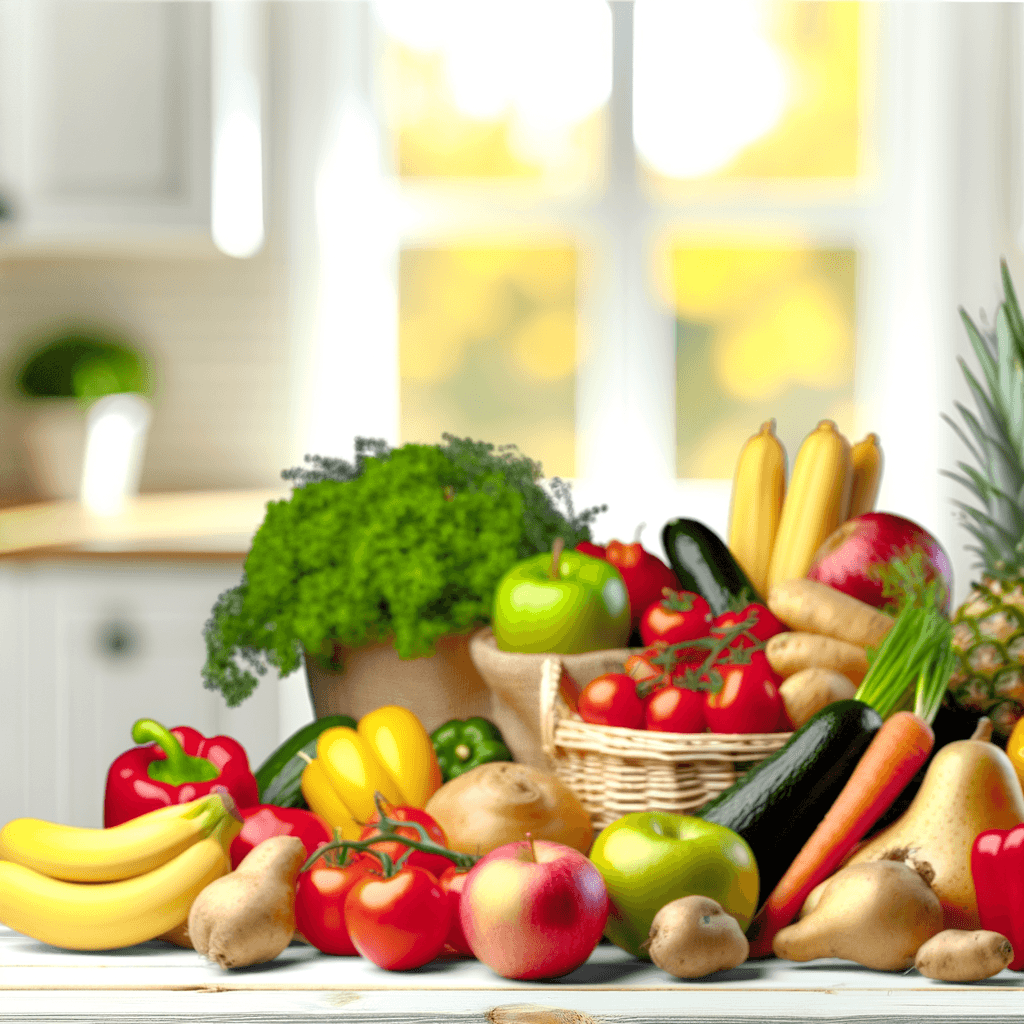Organic vs. Non-Organic: What’s Healthier & Why It Matters
Organic vs. Non-Organic: What Really Matters?
In a world inundated with choices, the debate between organic and non-organic produce seems to be ever-relevant. As individuals seeking personal growth and holistic well-being, understanding the impact of our food choices on our physical and mental health is paramount. How can we make informed decisions that align with our values and promote a better quality of life? In this blog post, we will explore the organic versus non-organic conundrum, delving into what really matters and how it affects our well-being.
The Rise of Organic Foods
The concept of organic farming dates back to the early 20th century, but it gained significant traction in the 1960s as part of the health and environmental movements. Organic farming emphasizes sustainable practices, biodiversity, and the absence of synthetic fertilizers and pesticides. As a result, many consumers are drawn to organic produce for several reasons:
- Environmental Impact: Organic farms use techniques that aim to preserve ecological balance, reducing pollution and conserving soil and water.
- Health Benefits: Organic produce is often perceived as healthier due to the absence of harmful chemicals. Many believe it enhances nutrition.
- Support Local Farmers: Buying organic often means supporting small, local farms, fostering community connections.
Understanding Non-Organic Foods
Non-organic or conventional farming tends to employ various synthetic inputs to increase yield and combat pests. While some may question the safety and nutritional quality of non-organic foods, it’s essential to examine the facts:
- Availability and Cost: Non-organic foods are typically more accessible and budget-friendly, making them a staple for many households.
- Use of Pesticides: Conventional farms use chemical treatments to protect crops from pests; however, these residues can remain on food products.
- Nutrient Content: Some studies suggest that non-organic foods might have similar nutrient profiles compared to organic ones, though this can vary.
What Research Says: The Nutritional Debate
One key factor for those on a journey towards better living is the nutritional impact of their food choices. In recent years, research has produced mixed outcomes regarding whether organic foods are significantly more nutritious than their non-organic counterparts. A study published in the British Journal of Nutrition found that organic produce is higher in antioxidants and lower in pesticides. However, findings imply that the nutritional difference may not be substantial enough to warrant the higher prices associated with organic products.
Ultimately, what matters is the overall diet and lifestyle choices we make. Focusing solely on whether our food is organic or non-organic can steer us away from the bigger picture of holistic wellness.
The Impact on Well-Being: Beyond Nutrition
Beyond nutritional factors, the decision to choose organic versus non-organic extends into realms of personal ethics and mental well-being. Here are some points to consider:
- Mindfulness: Making intentional decisions in food consumption fosters mindfulness, a vital component for those exploring mindfulness techniques. Consider where your food comes from and how it impacts your health.
- Stress Relief: Knowing that you’re consuming food without harmful chemicals can invoke peace of mind, aiding in stress relief techniques as outlined in our previous articles.
- Connection to Nature: Organic farming promotes biodiversity and environmental stewardship which can enhance feelings of connection to the earth, an essential aspect of holistic living.
Finding Your Flow State in Food Choices
As you navigate the organic versus non-organic debate, it’s important to align your choices with your personal values and what resonates best for you. How can you determine the right approach?
- Reflect on your core values: What is important to you in food consumption – health, environmental sustainability, or budget?
- Research local sources: Support local farmers or markets that provide organic options while staying aware of potential retirement plans for those dependent on large conventional farms.
- Experiment with different foods: Try rotating between organic and non-organic options to observe how your body responds, both physically and mentally.
- Prioritize whole foods: Regardless of organic status, focusing on whole, minimally processed foods will always contribute positively to well-being.
By incorporating these steps, you can create a better connection to your food choices, ultimately leading to a healthier life.
Conclusion: Create Your Life Through Conscious Choices
The organic versus non-organic debate is not merely a matter of health but a reflection of our overall approach to life. Each choice we make contributes to how we feel physically and emotionally. Ultimately, whether you choose organic or non-organic produce, remember to focus on cultivating a balanced, mindful lifestyle.
Feeling empowered to create your life begins with informed decisions that align with your values. To further enhance your holistic wellness journey, consider exploring more articles on stress relief techniques and daily habits for happiness.
For additional resources, download our free guides and join our community on Instagram for tips and inspiration. Together, let’s embark on this journey of self-discovery and personal growth!







